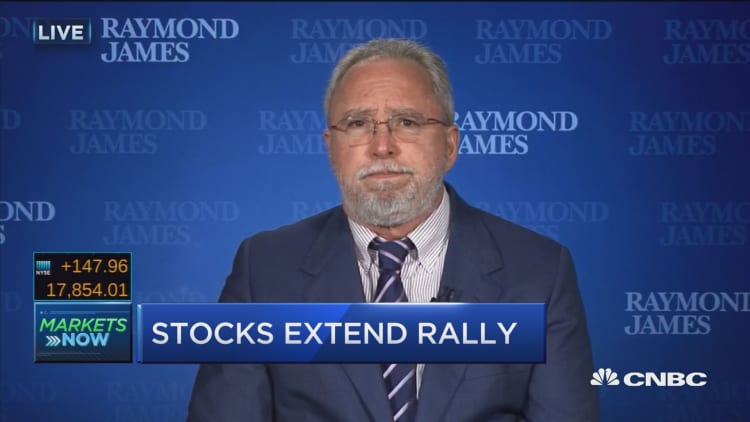
With the major U.S. indexes positive for the month, the markets seem to be giving their blessing for the Fed to move this summer. But according to Scott Brown, Raymond James chief economist, even slow moves historically cause market ripples.
"It shouldn't really matter that much, but we've seen oversized market reactions for a number of years," Brown told CNBC's "Squawk on the Street" on Wednesday. "Even earlier this year, there was a lot of fear about the Fed."
The thing to remember, he said, is that Fed policy will still be "very accommodative" even after the next three rate increases.
"The analogy is not so much that they're hitting the brakes as taking their foot off the gas pedal," Brown said.
Brown and his team at Raymond James don't anticipate a June rate hike, and said July or September is more likely. Still, the Fed raising rates is the ultimate sign that they're getting comfortable with the economic outlook. He pointed to the consumer sector, which makes up 70 percent of the U.S. economy. Job growth and wage growth have been strong, with room to go in average hourly earnings, according to Brown.
Emerging markets and global turmoil have been main factors for the Fed's decision, and key reasons they paused on a September rate hike.
"Even this year we saw further turmoil," Brown said. "But things look a little more stale, and I think that gives the Fed the green light."
Any move by the Fed will likely drag down market prices of companies, Brown said.
"If interest rates are low, price-earnings ratios can be a lot higher," he said. "So as the Fed raises interest rates you might expect P/E ratios to come down."
Corporate earnings, however, are likely to improve, as energy stabilizes and the dollar weakens.
"The strong dollar and earnings have been a bit of a pressure," Brown said. "But we think that's transitory, and we're looking at better growth beyond the election and into 2017."





